Today is my last day of time off work from a tonsillectomy a week ago Thursday. I’m down to about 20mg of OxyContin/day (from 60mg) and hope to have that down to nothing by Monday (although I still have half a jug for my next party : ).
Why would a grown man fresh off two SDRs and a BillG review feel the need to have his tonsils pulled? Well, I’ve been trying to talk someone into taking them for a coupla years now, even since the recurring strep throat started, but no luck. This time it was because I wasn’t sleeping properly.
A few months ago at a routine checkup, my doctor was working her way down a standard questionnaire, asking me if I had this problem or that problem. I’d been swimming a lot and had lost a few pounds recently, so mostly I didn’t have any health problems. Until she got to sleep:
“Are you having any trouble sleep?”
“Well, I’ve been waking up about 4am every morning, no matter when I go to bed.”
“Any stress?”
“I work at Microsoft,” I said, figuring that was answer enough.
She laughed. “I mean anything out of the ordinary?”
I couldn’t think of anything that would explain it, so I said so.
“Have you ever had a sleep study?”
“Well, one time I recorded a chapter of my social studies text book and listened to it all night while I slept. I got an A on that test.”
Now she was just tired of my lip, so she explained what she meant. And then she signed me up. And I went. And it sucked. Imagine trying to get sleep while tied up (and not in a good way!).
The diagnosis of my sleep study was “severe sleep apnea,” as defined by more than 10 episodes an hour when I stop breathing and more than 10% decrease in oxygen to my brain. I was at 31 and 17% respectively, the sleep tech told me as they strapped me in for sleep study #2, this time with a C-PAP machine. Now imagine sleeping while being tied up and gagged.
Apparently the gag improved my sleep enough that it “cured” my sleep apnea so, without benefit of advice from an actual sleep doctor yet, I was set up with my own C-PAP machine, where I could gag myself every night before going to sleep. And not just gag myself, but strap on a hockey mask while someone blows into your mouth all night long. And now try to sleep while this is happening. My father got one and complained bitterly about it for a full year ’til he got used to it.
So, being even more stubborn than my father (which, if you knew my father, is stubborn on a Biblical scale), I asked for a second opinion. Or at least a first opinion from an actual sleep doctor (and not just a tech).
And I got one. There are other treatments besides C-PAP machines for sleep apnea, among them tonsillectomy (can work depending on the patient), some kind of dental appliance (generally not very successful) and, I kid you not, learning to play the digeridoo. This last one had me particularly interested as I’ve always wanted to do that anyway. (Come on! Breathing in and out at the same time and making weird noises! It’s like sex without the mess!)
“Well, let’s see if a tonsillectomy would help you,” the doctor said, leaning in for a look down my throat. He shined his little light in and then started backward as if scared. “Oh, yeah… You’ll want to have those looked at,” he said, his eyes all big.
“What?” I asked, a little worried.
“Those are within the range where should talk to an ear-nose-throat doctor about having them removed,” he said, hastily writing out a recommendation and stealing a look at my throat out of the corner of his eye as he did so.
And so I went to the ENT doctor, a young’un one step up from Doogie Howser (or maybe just having celebrated my 39th birthday, everyone is starting to look really young to me…). He explained how things worked inside the mouth and throat. He looked at my nose. He looked in my ears. He understood my dislike of the C-PAP machine. He described the four-point scale they used for measuring tonsils, asked me to open wide and, like the other doctor, started backward after a 500ms look.
“Those are huge!” Doogie said.
“Really?”
“Yeah!” I swear his pupils were dilated in some kind of fight or flight response.
“So, on the four-point scale?”
“4+. Huge!” he said. “Most people have a bunch of space around their tonsils to let he air in. How are you able to breath at all?”
“OK, doc. What do you think we should do?”
“We should take ’em out! Here’s how it’s going to work…” and he started describing the surgery, which was to include removing my tonsils, shaving back my uvula and fixing my deviated septum.
“Will I ever be able to sing?”
“Sure,” he said. “That shouldn’t be a problem.”
“Great. I’ve always wanted to be able to sing!”
He laughed. “Well, no promises there.” And then he started to describe the complications. Up until then, I was fine with him talking about permanent non-trivial surgery to correct a problem that I could be using an external (infernal!) machine to correct otherwise. But when he started talking about “uncontrolled bleeding” and “rushing to the emergency room as [my] stomach filled with blood,” well, that was a bit much after no breakfast that morning.
“Are you OK?” he said, a concerned look on his face. “You’ve gone all white.”
“Ah, no, actually, I’m not. I’m feeling a bit faint…”
So Doogie had me put my head between my knees and breath deeply. And when that didn’t work, he popped some smelling salts under my nose. That hurts! But that didn’t work either.
“Huh. That normally works,” he said, dumbfounded at the giant man getting ready to pass out in his office. “Nurse! Bring me some juice!”
After recovering from the mere idea of uncontrolled bleeding down the back of my throat (which still makes me a little queasy just typing it), he said, “Well, let’s not talk about that any more. You’ll come in and I’ll take care of it, OK?”
That sounded good to me, so I scheduled the surgery for 6/5, a week after the BillG and a few days after my birthday (my own gift to myself : ).
So, I had a few weeks to shutdown my work because the doctor said that I would be out for “at least” two weeks recovering. “And you’ll be on heavy medications, too. Kids bounce back in a day or two, but this is *very* painful surgery for adults.”
Great. Never had any surgery other than my wisdom teeth and now I get a doozy.
I started informing those around me of my impending doom. And then the advice started.
“The first week was really easy. It’s the *second* week that’s hard.”
“My throat hurt so much that I just didn’t eat for two weeks. I lost 30 pounds!”
“Those drugs will lower your IQ by like 30 points.”
“I wonder if your voice will change? Mine did.”
“I had a tonsillectomy as an adult and I still can’t say my Ls properly.”
As a professionally speaker, I didn’t mind the idea of my voice changing a little (hopefully deeper), but losing my Ls? Good lord!
I was not to eat or drink starting midnight the night before my surgery, so I didn’t. Normally the sleep deprivation has acted as an appetite suppressant, so that and the exercise has caused me to lose 43 pounds in the last 6 months. Missing a few coupla meals hasn’t been an issue, but by 3pm the next morning, sitting on the hospital bed in a hospital gown, my ass hanging out while every nurse and doctor in the place asked me if I’d avoided food and water of any kind and I started to get damn hungry, hoping for the surgery just to have something else to do (although Melissa let me win a few hands of gin, which was nice).
Then the nice anesthesiologist came and slipped me a little something. I felt completely normal for about 10 minutes and then I woke up in the recovery room, the nurses asking me if I could help them move from the gurney to the bed. Seriously. That was my entire surgical experience. Melissa was there, making sure my stuff came with me and asking if I was OK.
Oh, and I was feeling no pain. I don’t remember much from those first few hours. I could talk, which apparently was very unusual. I could walk. I remember my sister-in-law bringing my boys by for a visit and them waking me up every five minutes so I didn’t spill my juice all over myself. I remember several pretty nurses waking me up every hour or so to adjust this sensor or give me that medication. I don’t remember what I said to them, but I do remember making them laugh, which made the increasing pain of my throat more bearable.
We figured out my pain dosage that first night, 10mg of OxyContin every 4 hours mixed with intravenous morphine to take the edge off. I was disappointed that I didn’t get any kind of “high,” though. I just felt fuzzy headed and sleepy. Is that what Rush liked? I don’t get it. I tell you though that the tennis elbow I’d given myself with the free weights in my garage was *completely* cured.
In that first 12 hours, it was my job to be able to walk, go to the bathroom on my own and manage my own pain via oral medications. And I did so. In fact, I was recovering so quickly, the doctor came by and gave me permission to go home hours early. I’d told him the night before that, if my voice had to change, could he push it toward Barry White? Oh, and I’d like to be able to say all my letters if possible. That morning, he asked, “Have you tried it? Can you still say your Ls?”
And then, because I couldn’t not, I channeled A Christmas Story for demonstration purposes: “Fa ra ra ra ra ra ra ra ra!” willing to endure the pain in my throat for the cheap laugh. And I got it. : )
I came home a week ago Friday and have been largely ignoring my work, sleeping most of the time, getting up mainly for drugs every four hours and a little food (Top Ramen, Popsicles and water). The combo put me to sleep within an hour, giving me just time enough to send the random pathetic email or IM before collapsing again. Gradually I’ve been cutting back on pain meds and eating more, my throat just a minor annoyance at this point. It still hurts and my voice is still scratchy, but a quick chug of OC and I’m back in the game, mostly awake during the day and asleep at night.
I went in for my week check-in with the ENT guy yesterday. He was delighted to tell me about micro-pustules and puss inflammation that had riddled my tonsils. Not only where they “huge,” but apparently my body’s been fighting them off as a low level infection for who knows how long. While telling me this, the doctor put a bib around me and handed me a tray to hold as I looked at him questioningly.
“Oh, I don’t think you’re going to throw up,” he said, rummaging for some instruments in a drawer. “I just need you to hold the splints when I take them out.”
As part of fixing my deviated septum, Doogie had put splits in my nose so that things would heal open. At the mention of “splint,” I thought of a little stick to hold my nostril open like the pole in the center of a tent. I thought he’d reach in, cut it in two and pull out a couple of tiny toothpicks. Well, he reached in, stretched my nostril to uncomfortable proportions, clipped the thread holding the split in and started pulling.
Have you seen the scene from Total Recall where Arnold reaches up into his nose and pulls out that giant tracking device? Yeah. Think that except the split was longer. The doctor kept pulling and it kept coming out until it fell with a thump into the tray.
“That was in my nose?!”
“Yep. And there’s another one on the other side,” he said, reaching for the other side.
“There is?!”
“Yeah. Didn’t I tell you? Oh, I guess you were asleep when I put them in,” he said, pulling another canoe out of my other nostril.
“Oh my god!” I said, looking down at the snot covered railroad ties in the tray I was holding.
“Are you OK? You look a little pale. OK, head back…” He was much more comfortable getting the color back into my face the second time, having practiced on me before.
“Nurse! Cold compresses!”







































![ss1[5] ss1[5]](https://cdn.blot.im/folder/v-494c149d/blog_12688eba996c4a98b1ec3a945e78e4f1/public/post-images/13740-259.png)



 In 1992, I was a Unix programmer in Minneapolis. I’d graduated with a
In 1992, I was a Unix programmer in Minneapolis. I’d graduated with a  In 30 years, I’ve done a lot of interviewing from both sides of the table. Because of my chosen profession, my interviewing has been for technical positions, e.g. designers,
In 30 years, I’ve done a lot of interviewing from both sides of the table. Because of my chosen profession, my interviewing has been for technical positions, e.g. designers, 






























 In
In 



 With the exception of
With the exception of 
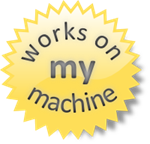











 Where Are We?
Where Are We?
 At Microsoft, there’s this passive-aggressive cultural thing called a
At Microsoft, there’s this passive-aggressive cultural thing called a 










 The boys and I were driving past a church with a holiday bizarre, so we stopped by. It was a mix of silent auction, bake sale and a $1 raffle for a turkey dinner with all the fixings. I made several comments about how they could skip the formality of the drawing and to make sure they could read my phone number on the back of my raffle ticket, because I was obviously going to win. They laughed.
The boys and I were driving past a church with a holiday bizarre, so we stopped by. It was a mix of silent auction, bake sale and a $1 raffle for a turkey dinner with all the fixings. I made several comments about how they could skip the formality of the drawing and to make sure they could read my phone number on the back of my raffle ticket, because I was obviously going to win. They laughed.





 A few years ago, I looked like the
A few years ago, I looked like the  I tried dieting. A few years ago, I was able to lose 50 pounds on
I tried dieting. A few years ago, I was able to lose 50 pounds on 







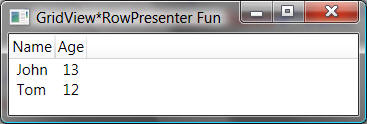


































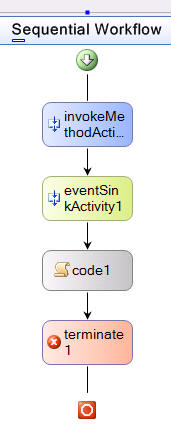

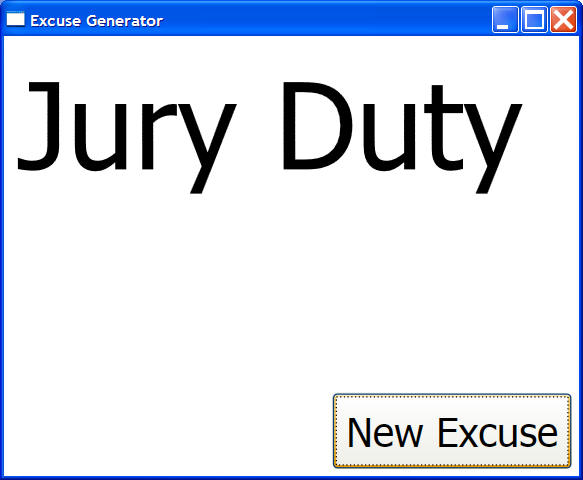
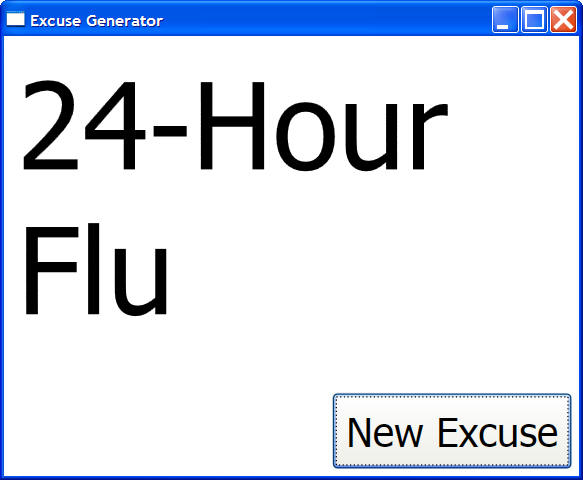




























 If
you’re interested in this topic or what other interesting things Don
will say next, he’s giving the keynote address at the
If
you’re interested in this topic or what other interesting things Don
will say next, he’s giving the keynote address at the
